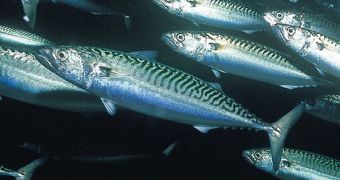The fact that several international debates revolve around fish stocks and sustainable fishing is no news.
Therefore, it needs not come as such a big surprise that Scotland is now determined to get Iceland to cut down on the amounts of mackerel its fishing boats take out of the water, supposedly because the latter's current fishing practices do anything but support and promote sustainability.
Two days ago, prior to a meeting between the EU Fisheries Commissioner Maria Damanaki, Norway's Fisheries Minister Lisbeth Berg-Hansen, and Icelandic Fisheries Minister Steingrímur Sigfússon, the official website for the Scottish government argued about how important it is for Iceland to cut down on its mackerel quotas.
At that time, Richard Lochhead, Cabinet Secretary for Rural Affairs and Environment, stressed that, “It’s a source of deep frustration that the excessive mackerel fishing by Iceland and the Faroes [i.e. the Faroes Islands] has continued unabated, with the consequence being that the sustainability of this valuable fishery is increasingly at risk.”
However, judging by Iceland's standpoint during the preliminary talks – which took place only yesterday – it seems that both Scotland and the EU might have a hard time convincing this country to give up on some of its mackerel quotas.
Apparently, the topic is to be resumed this October, yet some of the high officials present at past this meeting doubt that a mutual agreement will become possible in such a short time-span. According to some sources, the European Parliament is expected to soon get involved in solving this conflict.
On the other hand, as reported on Fish Update, Frederick J. Arngrímsson from the Icelandic Fishing Vessel Owners Association, claims that, “The big issue is that mackerel goes increasingly into Icelandic waters, and we have the same rights as Norway and EU on mackerel. The aim remains to reach agreement on the management of fisheries and to ensure a fair share.”
From where we stand, it may very well be that the countries involved in this conflict have some personal interests at stake, yet final emphasis needs to be placed on sustainable fishing and proper management of our existing fish stocks.

 14 DAY TRIAL //
14 DAY TRIAL //